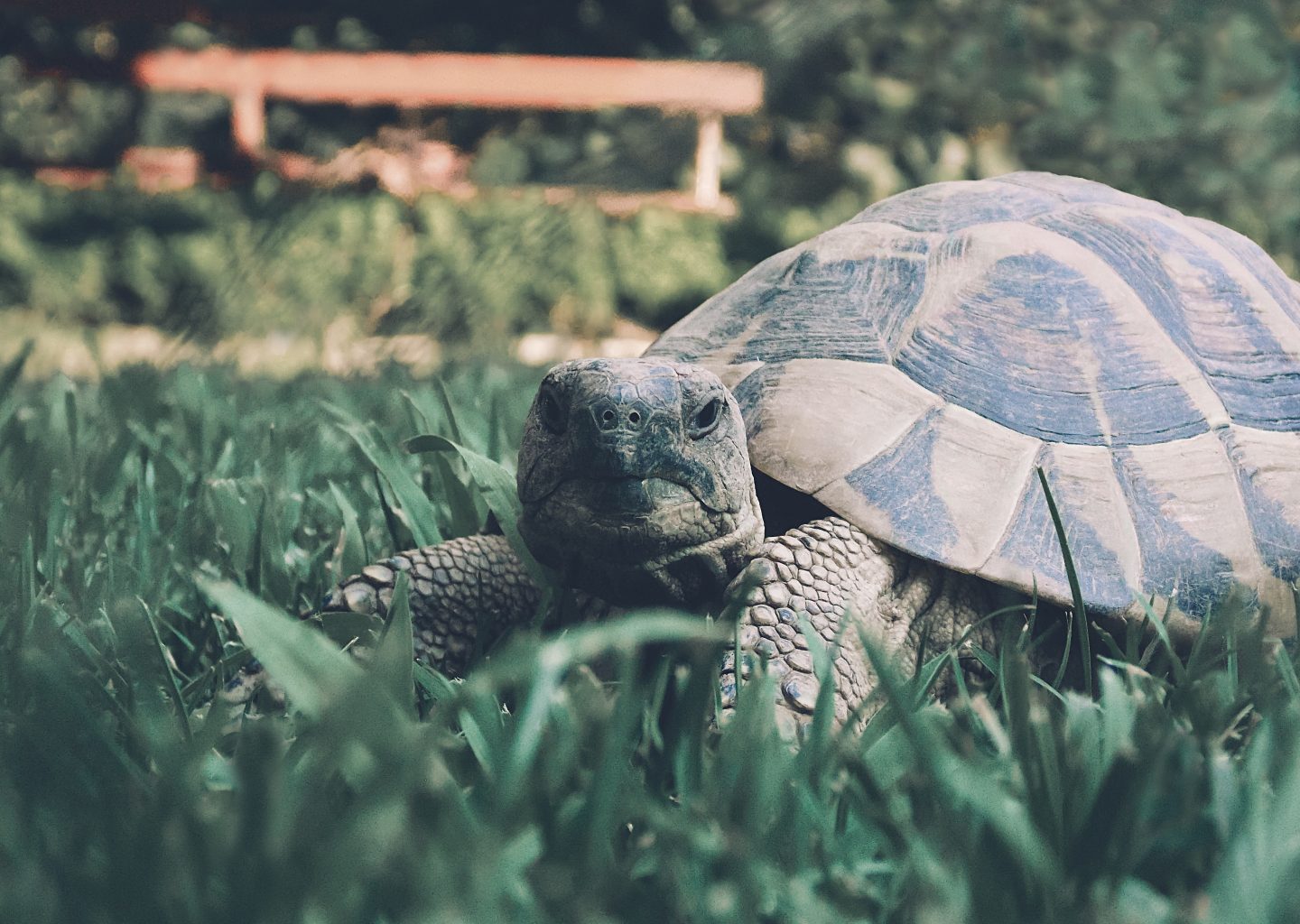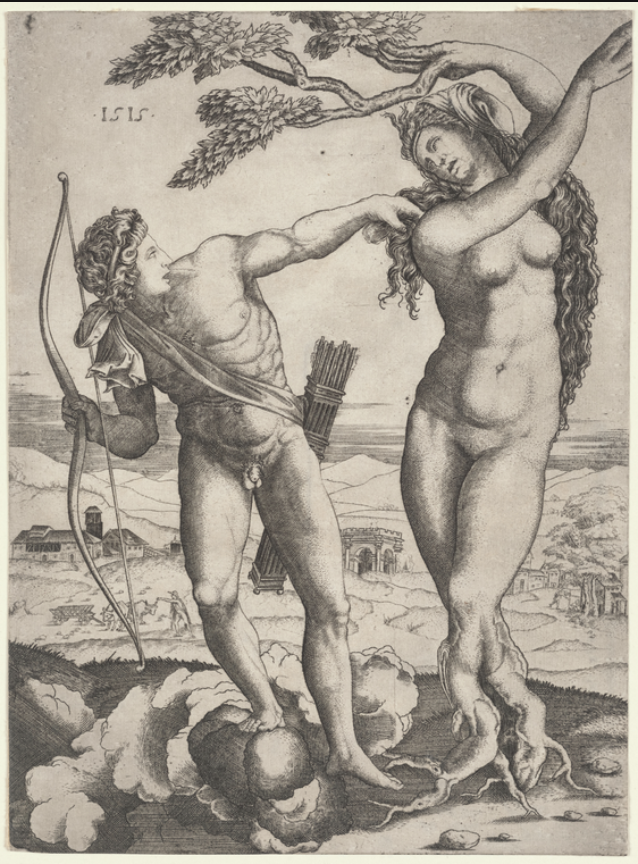When as that genial universal fire,
Had in the Turtle’s re-inflamed desire.
He having found a Beauteous Paramore
Her love and pity, both he doth implore.
But she as wife, as fair, as chaste, as coy,
Was loth to sell her freedom for a toy.
For having spied above she waves his head
She chastely his defined embraces fled.
Love made him nimble, fear made her make haste,
So, Daphne from her lover fled as fast.
At last his breath did move her flowing hair,
En’e so the Turtle did ore catch his Hare.
Thus, love then fear did prove more swift in chase,
Which forced her yield unto her loves embrace.
So, the Grand Signior makes his vassals yield
When through their foot his cruel sphere, they field.
By this, the women of this age may see
Nothing gains love like virgin Modesty.
For love repulsed doth more mirage desire
As Ayes thrown on to quench, augments the fire.
Then ladies leave your impudence for shame,
Let not the Turtle have a chaster flame.
The Chase
By Joanne Kenton
The story of Daphne and Apollo is an ancient Greek myth where Daphne, a nature loving Nymph is wooed by Leukippos and Apollo. After, Leukippos admits his love for Daphne and she does not respond he decides to disguise himself as a women to get close to her. Apollo, who has been struck by a golden arrow, is also in love with Daphne, exposes Leukippos for who he really is and kills him in an attempt to win Daphne’s heart. However, a moment too late, Daphne realizes that she loved Leukippos and rejects Apollo. As a result, Apollo asks grant Daphne her wish to be one with nature and she is transformed into a laurel tree.
Apollo and Daphne
The Miriam and Ira D. Wallach Division of Art, Prints and Photographs: Print Collection, The New York Public Library. “Apollo and Daphne” The New York Public Library Digital Collections. 1515. http://digitalcollections.nypl.org/items/6c6f7780-5535-0135-d6f8-692ffb4c8097
The Miriam and Ira D. Wallach Division of Art, Prints and Photographs: Print Collection, The New York Public Library. "Apollo and Daphne" The New York Public Library Digital Collections. 1515.

